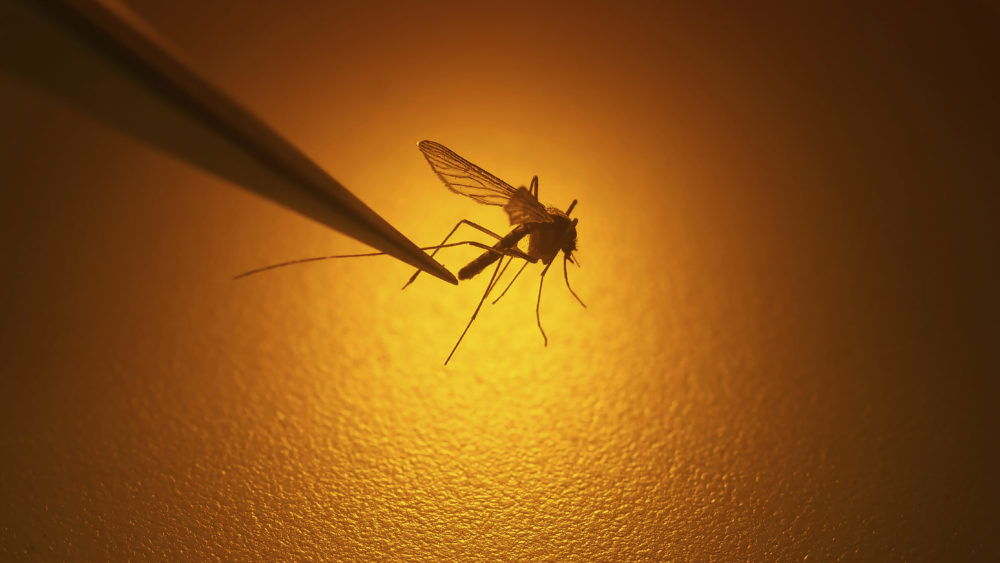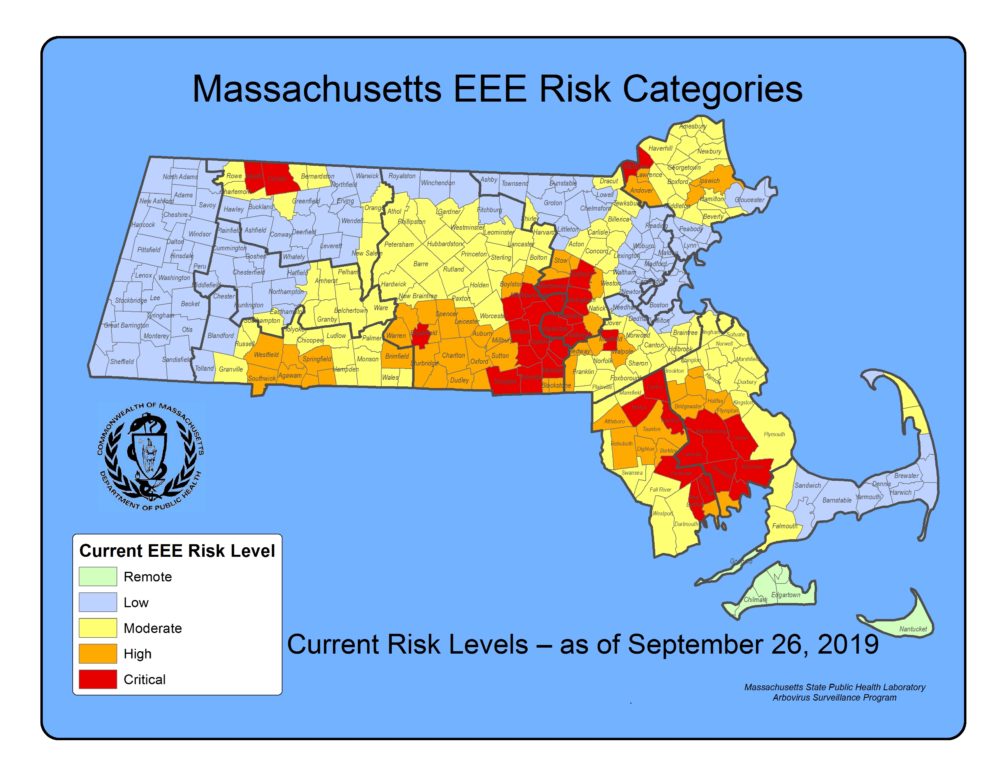Advertisement
12 People In Massachusetts Have Contracted EEE This Year

The state Department of Public Health corrected itself Thursday, saying that three people have died from Eastern equine encephalitis in Massachusetts this year, not four, as the agency had stated the day before.
DPH said the fourth death, which was disclosed Wednesday, was the result of an incorrectly reported death by a hospital.
DPH also said Thursday that another person — a Hampden County woman in her 70s — had contracted EEE.
There are now 12 people who have fallen ill from the virus.
Additionally, DPH raised the risk level for several more communities in western Massachusetts. As of Thursday, 88 towns and cities in the state were at high or critical risk for EEE. Here's the latest map:

The virus is spread to humans by mosquitoes, which pick up the virus from infected birds, the primary carriers of the disease. Infected mosquitoes can then transfer the virus to people and other animals. For that reason, the health department urges all members of communities at high or critical risk for EEE to avoid going outside during hours between sunset and sunrise, and to use mosquito repellent outdoors.
“We really advise that all outdoor activity is during daylight hours, and that they consider rescheduling outdoor events to avoid dusk to dawn hours,” says state epidemiologist Catherine Brown.
State and county authorities have sprayed insecticide targeting mosquitoes in seven counties in an effort to combat EEE and West Nile Virus. But health officials say there will not be any further spraying this season.
This has been one of the most active years for EEE in over half a century, Brown says. In addition to the 12 human cases, seven horses and one goat have contracted EEE, and the health department has detected the virus in 422 mosquito samples.
There is currently no cure and no commercially available human vaccine for the virus. However, EEE is still a rare disease.
“Despite taking precautions, there are people getting bitten. Most of them do not get EEE,” says Brown. “At the department, we have tested over 400 people this season who had symptoms compatible with EEE but didn’t have it.”
The risk for the virus will continue until a hard frost, according to public health researchers. Until then, despite falling temperatures, the risk and recommendations for mosquito-borne illnesses remain in place.
“Everybody please wear mosquito repellent even during the daytime,” says Sam Telford, an epidemiologist at Tufts University.
This article was originally published on September 25, 2019.
